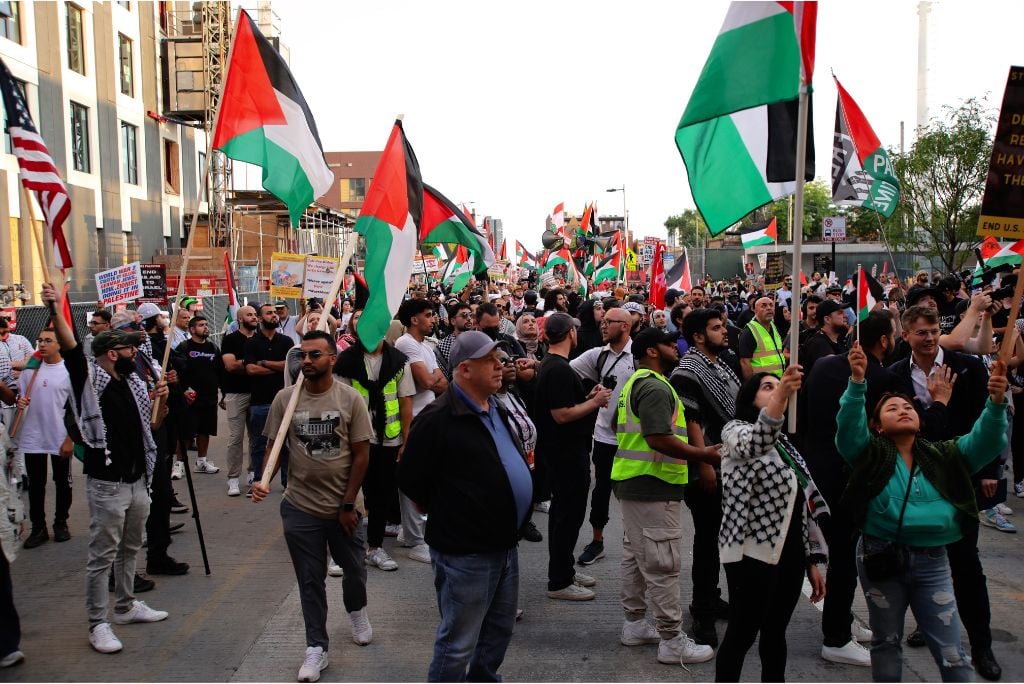ADVERTISEMENT
Secretary of State Marco Rubio confirmed the revocation of visas for approximately 300 foreign nationals accused of participating in activities supporting the terrorist group Hamas.
The news spread like wildfire. During an event in Georgetown with Guyana’s President Irfaan Ali, Rubio did not hesitate to call those affected “lunatics” who have turned universities into ideological battlegrounds.
According to the Department of Homeland Security, these individuals, mostly foreign students, have led violent protests against Israel over its offensive in Gaza.
One high-profile case is that of a Turkish student in Boston, who was arrested after publishing an op-ed and participating in acts that the government directly links to Hamas.
The message is clear: Washington will not tolerate what it considers a direct threat. A spokesperson for the Department of Homeland Security stated that the Turkish student “participated in activities supporting Hamas” but did not provide specific evidence.
As expected, this decision has drawn criticism from the opposition. However, Donald Trump’s administration maintains that constitutional protections for free speech do not apply to foreign nationals promoting terrorist agendas.
To understand this decision, one must look back at the conflict in Gaza. Since Hamas’ brutal attack on October 7, 2023—which left more than 1,200 dead and 251 kidnapped in Israel—the war has escalated without restraint. With U.S. support, Israel has intensified its offensive, while Hamas continues to hold hostages, an estimated 35 of whom have died.
Ceasefires, such as the one on January 19, 2025, have been fragile. On March 18, Israel broke the truce, unleashing a new wave of bombings that killed more than 400 people in Gaza, according to the Gaza Health Ministry.
This chaos has crossed the Atlantic. Universities like Harvard, Columbia, and MIT have become epicenters of anti-Israel protests. Foreign students, many on F-1 visas, have led marches, blockades, and, in some cases, acts of vandalism.
The Trump administration has shown no hesitation in its response. Since returning to power, it has prioritized national security and support for Israel. The visa revocations are based on Section 212(f) of the Immigration Code, which grants the president broad authority to restrict the entry of foreign nationals deemed “detrimental” to U.S. interests.
This same authority was used in 2017 for the controversial “travel ban” against Muslim-majority countries.
The decision has polarized opinions. Human rights organizations and progressive activists denounce it as an attack on free speech.
Universities are now at the center of the storm. Prestigious institutions have been criticized for allowing protests to spiral out of control. At MIT, for example, a pro-Palestinian encampment led to clashes with police in February 2025.
At Columbia, Jewish students reported feeling harassed, prompting federal intervention. According to the government, these schools have failed to contain what Rubio calls “a campaign against Israel.”
However, academics argue that universities are spaces for debate, not indoctrination camps.
The U.S. has sent an unequivocal message: “If we granted you a visa and you choose to do that, we will take it away.” And it has done so with 300 individuals, sending a firm warning—America’s doors are not open to those who betray the purpose of their entry.
A visa is a privilege, not a free pass to sow chaos or support those who massacre civilians and hold hostages.
About The Author
Post Views: 0
Read the full article here


